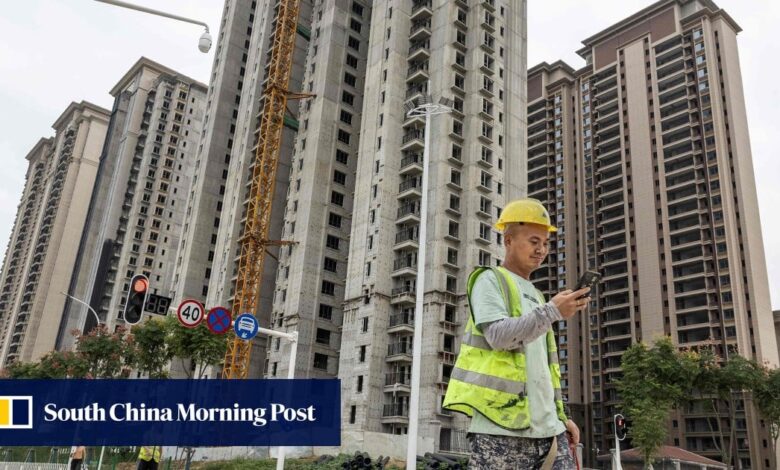US urged to see opportunity in China’s economic woes, and align policies accordingly

Washington should use economic weakness in China to attract capital and production capacity from the country instead of keeping tariffs and other hardline measures in place, an American economist said on Thursday.
A weaker yuan, falling property prices, rising youth unemployment and other negative economic indicators in China give American policymakers an opportunity to attract companies, intellectual property and the wealth of individuals looking for more opportunity, said Adam Posen, president of the Peterson Institute of International Economics think tank.
“If the US were to reorient its policies … towards suction – not sanctions – it would be to both our and the world’s advantage because it essentially puts pressure on [Beijing] to either accept that there’s going to be outflows or they end up like their forebears, autocrats in the Soviet Union, in Latin America and elsewhere,” Posen said during an event hosted by Foreign Policy magazine.
The latter course, he said, leads to “putting up more barriers, trying to stem the outflows, which we know that makes people more nervous and more eager to get around them”.
With predictions varying widely on how deep and prolonged China’s economic malaise will be, policymakers in Washington are bringing this factor into their thinking about what strategies are most effective in countering Beijing’s geostrategic influence.
Over-leveraging in the domestic property market has been a key factor in dampening an economic rebound that was expected when Beijing ended strict Covid-19 containment measures last December. Many businesses whose operations were affected by lockdowns failed to resume.
“It’s not that China’s falling apart,” Posen said. “None of us are saying it’s collapsing, but there is much more weakness there than in the economic sphere than people realised and so we should think about [US policy] in a different way.”
Chinese exporters navigate the bumpy road back to the international market
Chinese exporters navigate the bumpy road back to the international market
Bert Hofman of the Asia Society Policy Institute said that while there had been some improvement in short-term economic indicators in August, including stronger industrial production, they “do not yet promise a recovery of growth to pre-Covid levels”.
Hofman said in a report published on Thursday that Beijing’s “sustained emphasis on ‘high-quality growth’ signals that the authorities remain cautious about an all-out stimulus”.
“‘High quality’ is shorthand for growth that the economy can achieve without additional policy stimulus, and is part of Xi Jinping’s ‘New Development Philosophy,’” he wrote.
While policies aimed at attracting US businesses back from China are widely embraced by US lawmakers of both parties and President Joe Biden’s administration, Chinese companies looking to start operations in America have not been welcome.
Chinese corn mill project in US ordered halted on security concern
Chinese corn mill project in US ordered halted on security concern
Mary Lovely of the Peterson Institute, speaking on Wednesday, arguing for a more welcoming attitude when it comes to collaboration with China’s most innovative companies.
Citing the Ford-CATL project as an example, Lovely emphasised that US companies could stand to benefit from technologies developed by Chinese partners.
“In my view, Ford should definitely learn from CATL, which allegedly is the best technology in the world, and we should be using it here in the United States,” she said. “I don’t think we should be too proud to learn from others.”
“I think there’s another concern, which is that, as we focus myopically on the home front, which is overdue and needed, we lose sight of the fact that we live in a much bigger world,” she added. “A world that is much bigger than Nos 1 and 2.”





